
16 French Books Available in English Translation
I’m back once again to recommend you a list of incredible books available in English translation. This time, the books were all originally written in French. They explore tough topics, from the radicalization of youth to homophobia, from the devastating and insidious impacts of imperialism and war to the blossoming of queer love. They are modern prize-winners and underrated releases; they are once-censored classics and bestselling thrillers and literary fiction hits.
The authors, of course, come from all over. From Morocco, Iran, Mauritius, and Quebec, to name a few. Due to immigration and imperialism, the French language is ever-present in countries around the world. For this list, I decided to focus on authors who are based within the country of France and the region of Quebec, Canada; I plan for future lists that will include many other countries in which French is widely spoken.
As always, reading for this list was a joy. From Besson’s fierce yearning to the magnetic orbit of Devi’s Eve to the visceral pain of Diop’s descriptions of war, these 16 books represent some of the best of French literature available in English translation for our lucky bookshelves. Happy reading!
Please note that while I took great care to list content warnings where I could, sometimes things fall through the cracks. Please do additional research on the recommended titles if needed.
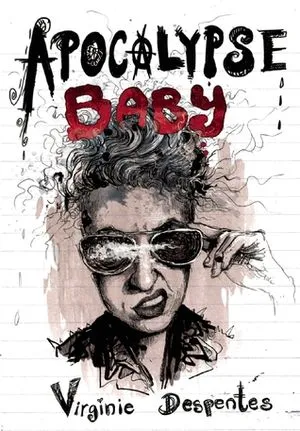
Apocalypse Baby by Virginie Despentes, Translated by Sian Reynolds
This fierce, strange book (with one of my favorite covers in recent memory) centers on a private eye tasked with finding a runaway teenage girl named Valentine. She enlists the help of the Hyena, an intensely intuitive butch lesbian who is known for her ability to solve the toughest cases. The novel shifts points of view, and takes the story into increasingly unexpected directions — such as the radicalization of youth and white nationalism, or the quietly queer awakening of one of the protagonists. It is a cynical, funny story that takes tragic turns, and Despentes uses her sharp writing skills to shift perspectives and allow the mysteries to come together on their own, only for the sake of the reader.
Content warnings for rape, sexism, ableism, fatphobia, drug use, the ‘R’ slur, racism, radicalization, terrorism, violence.
Eve Out of Her Ruins by Ananda Devi, Translated by Jeffrey Zuckerman
In the stressful bustle of Newark Liberty Airport, I zoned out entirely into Devi’s world. The Mauritian author writes about four teens in Port Louis, four young people who want to escape their doomed neighborhood, growing up too fast as they grow increasingly certain that they’ll never be able to get out. Eve is the center of the novel, the magnetic girl willing to sell her body if it means she can survive, with Savita at her side, steadfast and sweet. Saadiq looks at Eve from afar, his poetry floundering in the toxic macho teen world he inhabits, and rebellious Clélio dreams of his brother finally bringing him over the sea to France. This novel about sapphic love, teenage dreams crushed by the imperialist and racist power structures, and a world built to break young people, is devastating and gorgeous.
Content warnings for rape, rape culture, trauma, homophobia, femicide, murder, domestic violence and abuse, profiling, suicidal ideation.
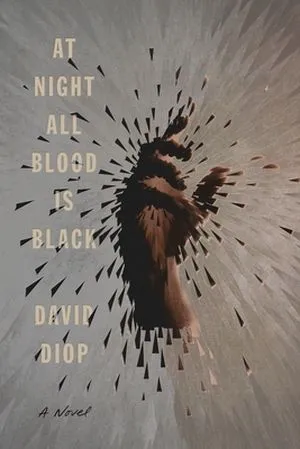
At Night All Blood is Black by David Diop, Translated by Anna Moschovakis
The winner of the 2021 International Booker Prize is a rich, short novel about the brutal pain of war. Alfa Ndiaye, a Senegalese man fighting with the French in World War I, can’t bring himself to mercy-kill his dying friend. This death haunts him, and begins to warp his mind — he begins to mutilate the bodies of soldiers, alienating those around him, a byproduct of the dehumanization and horrid racism of the war. It’s a brilliant short novel, exquisitely written, targeting the contradictions of war.
Content warnings for body horror, graphic violence, torture, rape mention, and racism.
The Dishwasher by Stéphane Larue, Translated by Pablo Strauss
In 2002 Montreal, a young music lover with a gambling addiction takes a job as a dishwasher at a fancy restaurant. In its way, it’s a simple concept, but it’s absolutely charged with the anxieties of modern-day young life. He’s being chased by his gambling debts, by his lies, by his suffering grades. The pace is relentless as he finds himself embroiled in a world of late-night characters and fellow workers, as he finds himself struggling to keep up both with his work and with the world outside him, thoughts racing as he struggles to escape his determination to gamble.
Content warnings for gambling addiction, drugs.

A Country for Dying by Abdellah Taïa, Translated by Emma Ramadan
Abdellah Taïa, also the author of books Infidels and An Arab Melancholia, is the first Moroccan writer to publicly come out as gay, and lives in Paris. This novel centers on Zahira, a Moroccan prostitute, and her experiences with a cast of characters who have impacted her life: her friend Aziz, who is transitioning into womanhood; Motjaba, a gay refugee who finds refuge at her home for a few days; and Allal, Zahira’s first love. It’s a short novel that strings a few narratives into one, to build up a story about marginalization, sexism, dispossession, and more.
Content warnings for homophobia, racism, violence.
Lie With Me by Philippe Besson, Translated by Molly Ringwald
The protagonist is having a normal day when he stumbles on a young man who looks just like his first love. His memories blossom out in Besson’s lyrical writing. He remembers his love affair with Thomas, their attachment, their secretive meetings. Thomas remains withdrawn and detached — class differences separate them, and he knows that one day, Philippe will leave their small-town life behind. Heteronormativity and class come between them. Ultimately, this book’s genius lies in its poetic writing and its ability to convey the longing, grief, yearning, and pain of staying hidden, to the reader.
Content warnings for homophobic language and suicide.
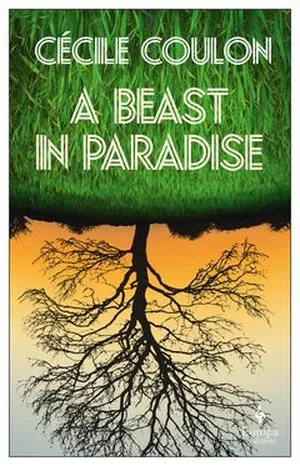
A Beast in Paradise by Cécile Coulon, Translated by Tina A. Kover
This 2021 release is a feverish story about Paradise, a idyllic family farm where Blanche and her brother are raised by their tough grandmother Emilienne. Teenage Blanche’s fierce love for the land will pull her in one direction as her adoration for ambitious Alexandre pulls her in another. There is something mythic — something eerie — something, perhaps, wrong with Paradise. I read this haunting novel of buried heartbreak and seething rage in one dedicated sitting — Coulon’s superb writing, fierce characters, and short chapters powered me through its final pages.
Content warnings for animal death, domestic abuse, grooming, parental death, self-harm, violence, disordered eating.
One Hundred Twenty-One Days by Michéle Audin, Translated by Christiana Hills
Audin is a member of the Oulipo, a French workshop that experiments with language to stretch what it can do as much as possible. In this novel, mathematician Audin explores the lives of French mathematicians — as well as Jewish mathematicians who struggled with discrimination and persecution — over the course of decades, including during the two World Wars. The format shifts wildly throughout its pages, from diary entries to fables to research notes, all coming together. And it has a few little tidbits and gems hidden in its code for those out there who are passionate about math.
Content warnings for persecution, antisemitism, violence.
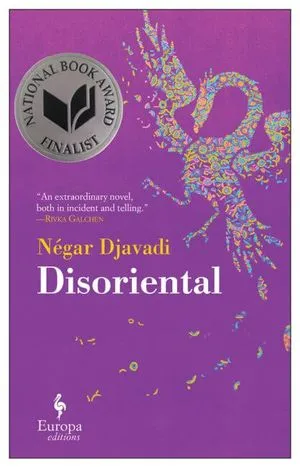
Disoriental by Négar Djavadi, Translated by Tina A. Kover
I haven’t been able to stop talking about Disoriental since I finished it in November 2020. It’s the intergenerational story of the Iranian Sadr family, all told in the whirling mind of queer, tough, punk protagonist Kimiâ as she sits in the waiting room of a Parisian fertility clinic. It’s a family saga told in a web of stories, playing with memory and the twisting knots of having heard a story from many different points of view, without having been there. She’s the daughter of two intellectuals who opposed the regime of the Shah and then of Khomeini, and she fled from Iran with her mother and sisters when young, heading towards Paris. The protagonist’s stories parallel Djavadi’s own, which adds a searing veracity to the tale and tone.
Content warnings for violence, racism, homophobia, xenophobia, political exile, and Islamophobia.
Rosie Carpe by Marie NDiaye, Translated by Tamsin Black
Ndiaye writes a painful book about Rosie Carpe, a young girl who just wanted to survive and find peace, and the story that led to her disheveled, confused arrival in Guadeloupe, pregnant and with her nervous son in tow, looking for brother Lazare. Rosie is painfully innocent, abandoned by her parents in Paris, forced to navigate painfully abusive relationships and scenarios on her own with little help. She’s hoping now that Lazare can help — but instead a Black man named Lagrand greets her at the airport, and he seems to not want to tell her where her brother really is. It’s a shifting, sharp story of confusion and the desperation of one broken woman to find peace.
Content warnings for sexual abuse and exploitation, alcoholism, rape, miscarriage, child neglect and abuse.
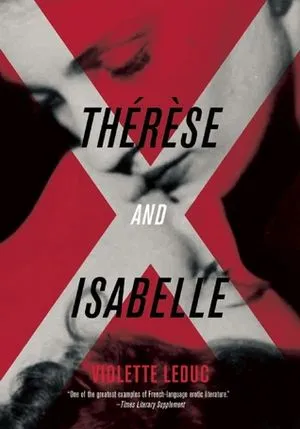
Thérèse and Isabelle by Violette Leduc, Translated by Sophie Lewis
When Leduc first came forward with her manuscript, it was heavily censored and resisted by publishers. It was too explicit in its descriptions of female desire and pleasure, and specifically graphic sapphic sex. It left Leduc frustrated: in a world of writers publishing daring texts, this story about two teenage girls exploring each other’s bodies was considered completely unpublishable. Leduc would someday get the acclaim she deserved with autobiography La Batarde, but even then it took years for this work of erotic lesbian fiction to be widely available, and it only became available in English translation in 2015.
Content warnings for homophobia, explicit sex, graphic sex.
Black Forest by Valérie Mréjen, Translated by Katie Shireen Assef
In this slim volume, writer and filmmaker Valérie Mréjen writes of a series of absurd deaths, writing about grief and sorrow in ways that are detached and somehow very real as a result. A divorced father stops by his ex-wife’s apartment with their children to pick up clothes, and they find her body in bed. The older daughter grows older and surpasses her mother’s age at death, and as she dreams, remembers, and wonders, Mréjen sprinkles in tiny vignettes of death, as if to try and get at what death is like, at its most broad and yet its most zoomed in.
Content warnings for suicide, sudden family death.

The Wound by Laurent Mauvignier, Translated by Nicole Ball and David Ball
The Wound is a breath-taking, emotional novel about French soldiers fighting in the Algerian War of Independence. We begin in the present, where town drunkard “Woodsmoke” makes a scene — but then we dive back into his time in Algeria, into the doubt, fear, and grief that he experienced. The narrative describes atrocities committed on both sides — shows the realities of a war, the neglect of its veterans, and the shame and trauma they carry from their participation in its fighting. It’s painfully relevant today, a story about occupation and failure to protect people you made promises to.
Content warnings for graphic violence, anti-Arab racism and violence, alcoholism, animal cruelty and death, rape threat, slut-shaming, torture, PTSD.
Mauve Desert by Nicole Brossard, Translated by Susanne de Lotbinière-Harwood
In part one of Québécois author Brossard’s postmodernist, twisty novel, queer Mélanie chases her freedom by driving across the Arizona desert, fleeing her mother and her mother’s lover Lorna. She is in love with the desert, the horizon, the open air. In part two, in meta-fiction fashion, a woman stumbles on the manuscript of part one, and sets out to try and find its meaning, its origins, so that she can translate it. And in part three, she does translate it: but of course, it isn’t the same as the original, and the differences highlight the complex act of translation and the difficulty of putting life into words.

The Perfect Nanny by Leila Slimani, Translated by Sam Taylor
French-Moroccan lawyer Myriam is returning to work after having children. When Louise comes into her life, she thinks they’re incredibly lucky — she’s the perfect nanny, cleaning their Paris apartment, devoted to the children, staying late, working extra hard. But from page one, you know something that Myriam does not: Louise will end up killing the two children in her care. The unraveling of the story is dark and reveals the dehumanization, class struggle, and power dynamics that are part of how rich parents treat those who work for them. Slimani is a writer to watch, and this mystery/thriller won a slew of awards on its publication.
Content warnings for violence.
Persepolis: The Story of a Childhood by Marjane Satrapi, Translated by Mattias Ripa
Most of you will recognize this one, but I had to include it because for the longest time I didn’t know it was a translated work! Satrapi’s now-iconic memoir of growing up in Iran during the overthrow of the Shah’s regime, the Islamic Revolution, and the war with Iraq, remains as compelling and fascinating as the day it came out. Its black-and-white illustrations and vivid stories of growing up and becoming an opinionated, bold teen, make this memoir the household name it is today. It was translated from its original French by Mattias Ripa.
Content warnings for violence, murder, torture, and discussions of sexual assault, political extremism, and religious extremism.
For more books in translation, check out my list of 20 must-read queer books in translation from around the world, or browse my lists of Argentinian and Catalan books available in English translation.




